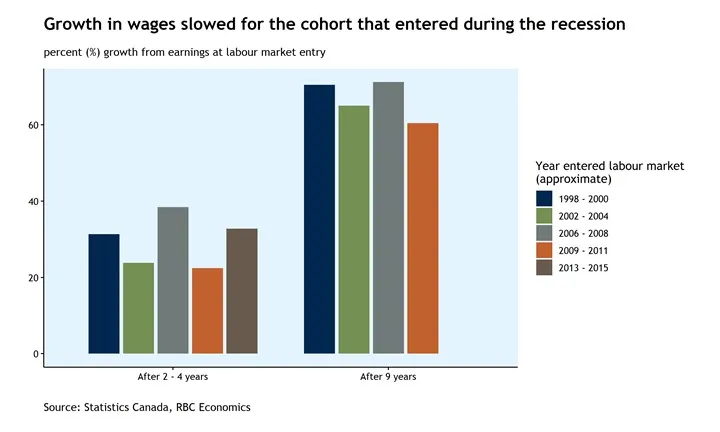Report on VinFast’s Strategic Financing for Indonesian EV Plant and Alignment with Sustainable Development Goals
Executive Summary
VinFast has secured a syndicated loan agreement totaling IDR 1.85 trillion (approximately US$110 million), with an additional US$80 million accordion facility, to finance the construction of its electric vehicle (EV) assembly plant in Subang, West Java, Indonesia. This strategic investment, supported by Bank Negara Indonesia (BNI) and PT Bank Maybank Indonesia Tbk (Maybank), is a significant step in VinFast’s regional expansion. The project is fundamentally aligned with several United Nations Sustainable Development Goals (SDGs), particularly those concerning industry, clean energy, economic growth, and climate action.
Financial Agreement Details
Loan Structure and Value
The financing package is structured to provide substantial long-term capital for VinFast’s Indonesian operations. The key components include:
- Initial Syndicated Loan: IDR 1.85 trillion (approx. US$110 million) designated for the construction of the manufacturing facility.
- Accordion Facility: An additional extension facility of US$80 million is available for future needs.
Key Financial Partners and Roles
The collaboration represents a significant public-private partnership aimed at fostering green industry development.
- Bank Negara Indonesia (BNI): Acting as the lead arranger and underwriter, BNI is financing the majority share of the initial loan, providing IDR 1.51 trillion (approx. US$90 million). This underscores the state-owned bank’s commitment to Indonesia’s green transition.
- PT Bank Maybank Indonesia Tbk (Maybank): As a key partner, Maybank will provide the remaining portion of the initial syndicated loan.
Strategic Objectives and Contribution to Sustainable Development Goals (SDGs)
Project Overview and Timeline
The financing will directly support the development of VinFast’s EV assembly plant in Subang, West Java. Construction commenced in July 2024, with operations scheduled to begin in the second half of 2025. The plant is poised to become a key manufacturing hub for both the Indonesian domestic market and for export, thereby strengthening the local automotive supply chain.
Alignment with Global and National Sustainability Agendas
This initiative makes a direct and measurable contribution to multiple Sustainable Development Goals:
- SDG 9 (Industry, Innovation, and Infrastructure): The construction of a state-of-the-art EV manufacturing plant enhances Indonesia’s industrial infrastructure and promotes innovation in the green technology sector.
- SDG 8 (Decent Work and Economic Growth): The project will create local jobs, foster skill development in advanced manufacturing, and stimulate sustained economic growth by supporting the local supply chain.
- SDG 7 (Affordable and Clean Energy) & SDG 13 (Climate Action): By manufacturing and promoting electric vehicles, the project directly facilitates a shift towards cleaner energy for transportation, contributing to the reduction of greenhouse gas emissions and advancing national climate objectives.
- SDG 11 (Sustainable Cities and Communities): The increased availability of EVs will help reduce urban air and noise pollution, contributing to the development of healthier and more sustainable cities across Indonesia.
- SDG 17 (Partnerships for the Goals): The agreement between VinFast, a Vietnamese company, and leading Indonesian financial institutions (BNI and Maybank) is a prime example of a cross-border, public-private partnership working to achieve shared sustainable development objectives.
Market Expansion and Ecosystem Development
VinFast’s Indonesian Market Strategy
VinFast is implementing a multi-faceted strategy to establish a strong presence in Indonesia, which includes:
- Launching a diverse portfolio of right-hand drive (RHD) electric vehicles, including the VF 3, VF 5, and VF e34 models.
- Aggressively expanding its dealership and service network across the country.
- Developing a comprehensive “For a Green Future” ecosystem to support EV adoption.
Strategic Collaborations for a Green Ecosystem
In line with SDG 17 (Partnerships for the Goals), VinFast is collaborating with strategic partners to build a supportive infrastructure for EVs. These partnerships with the all-electric taxi operator Green SM and the global charging infrastructure developer V-GREEN are critical for creating a seamless transition to electric mobility for Indonesian consumers, further supporting SDG 11 (Sustainable Cities and Communities).
SDGs Addressed in the Article
The issues discussed in the article, primarily the financing and construction of an electric vehicle (EV) plant in Indonesia, are connected to several Sustainable Development Goals (SDGs). These goals are interconnected and reflect the project’s impact on the economy, environment, and industrial infrastructure.
-
SDG 8: Decent Work and Economic Growth
The article highlights that the new manufacturing facility will “create jobs and support the growth of Indonesia’s electric vehicle industry.” This directly contributes to economic growth and employment opportunities in the region.
-
SDG 9: Industry, Innovation, and Infrastructure
The core of the article is about financing the “construction of VinFast’s electric vehicle assembly plant.” This represents a significant investment in sustainable industrial infrastructure. The focus on electric vehicles is a key innovation in the automotive sector, aiming to “bolster the local automotive industry’s supply chain.”
-
SDG 11: Sustainable Cities and Communities
By promoting the adoption of EVs, the project supports the development of sustainable transport systems. The article mentions facilitating a “seamless green transition for Indonesian consumers” and providing “eco-friendly mobility solutions,” which are crucial for reducing urban pollution and creating more sustainable communities.
-
SDG 13: Climate Action
The transition to electric vehicles is a critical strategy for mitigating climate change by reducing carbon emissions from the transport sector. The article emphasizes BNI’s commitment to “fostering the green transportation transition in Indonesia” and driving progress towards a “green and sustainable economy,” which are direct actions related to climate goals.
-
SDG 17: Partnerships for the Goals
The project is a clear example of a multi-stakeholder partnership. It involves a private company (VinFast), a state-owned bank (BNI), and a private bank (Maybank) collaborating to finance a major sustainable development project. The article describes the “long-term syndicated loan agreement” as a strategic collaboration to achieve shared objectives.
Specific SDG Targets Identified
Based on the article’s content, several specific SDG targets can be identified:
-
Target 8.2: Achieve higher levels of economic productivity through diversification, technological upgrading and innovation.
The establishment of a modern EV manufacturing plant signifies a move towards a higher-value, technologically advanced industry, which aligns with this target of boosting economic productivity through innovation.
-
Target 9.2: Promote inclusive and sustainable industrialization and, by 2030, significantly raise industry’s share of employment and gross domestic product.
The construction of the plant in Subang is a direct act of sustainable industrialization. The article states it will “create jobs” and become a “pivotal manufacturing hub,” contributing to industry’s share of employment and GDP.
-
Target 9.4: By 2030, upgrade infrastructure and retrofit industries to make them sustainable, with all countries taking action in accordance with their respective capabilities.
Building an EV plant is an upgrade to the automotive industry’s infrastructure, making it more sustainable by shifting production from traditional combustion engines to electric-powered vehicles.
-
Target 11.2: By 2030, provide access to safe, affordable, accessible and sustainable transport systems for all.
The project aims to make EVs more accessible in Indonesia by producing them locally and providing “financial solutions to bolster VinFast’s green ecosystem.” The launch of a “diverse portfolio of all-electric vehicles” supports this goal.
-
Target 17.3: Mobilize additional financial resources for developing countries from multiple sources.
The article explicitly details the mobilization of financial resources through a “syndicated loan agreement valued at IDR 1.85 trillion (equivalent to approximately US$110 million), along with an additional US$80 million accordion facility,” sourced from both state-owned and private banks.
Implied Indicators for Measuring Progress
The article mentions or implies several quantitative and qualitative indicators that can be used to measure progress towards the identified targets:
-
Financial Investment Mobilized
A direct indicator for Target 17.3 is the total value of the financing package. The article specifies this as “IDR 1.85 trillion (approximately US$110 million)” plus an “additional US$80 million extension facility.”
-
Development of Sustainable Infrastructure
An indicator for Target 9.2 and 9.4 is the successful construction and commencement of operations of the “electric vehicle assembly plant in Subang,” which is planned for the “second half of 2025.”
-
Job Creation
An indicator for Target 8.2 is the number of jobs created by the new facility. The article states the plant will “create jobs,” and the actual number of people employed would be a key metric.
-
Availability of Sustainable Products
An indicator for Target 11.2 is the number and range of EV models made available to the Indonesian market. The article mentions the “launch and delivery of a diverse portfolio of all-electric vehicles, including RHD variant of VF 3, VF 5, and VF e34 models.”
-
Growth of Green Industry
A qualitative indicator for SDG 9 and 13 is the strengthening of the local EV ecosystem. The article mentions this through the goal to “bolster the local automotive industry’s supply chain” and cultivate a “comprehensive ‘For a Green Future’ ecosystem.”
Summary of SDGs, Targets, and Indicators
| SDGs | Targets | Indicators |
|---|---|---|
| SDG 8: Decent Work and Economic Growth | Target 8.2: Achieve higher levels of economic productivity through diversification, technological upgrading and innovation. | The number of jobs created by the new manufacturing facility. |
| SDG 9: Industry, Innovation, and Infrastructure | Target 9.2: Promote inclusive and sustainable industrialization. | Construction and operational commencement of the electric vehicle assembly plant in Subang. |
| SDG 11: Sustainable Cities and Communities | Target 11.2: Provide access to safe, affordable, accessible and sustainable transport systems for all. | Launch and delivery of a diverse portfolio of all-electric vehicles (VF 3, VF 5, VF e34). |
| SDG 13: Climate Action | Target 13.2: Integrate climate change measures into national policies, strategies and planning. | Progress towards a “green transportation transition” and a “green and sustainable economy.” |
| SDG 17: Partnerships for the Goals | Target 17.3: Mobilize additional financial resources for developing countries from multiple sources. | The total value of the syndicated loan: IDR 1.85 trillion (US$110 million) plus an additional US$80 million facility. |
Source: vir.com.vn







